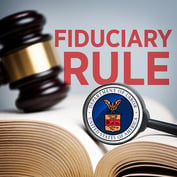It’s all just a click away: your life, your business and your reputation.
In today’s cyber-connected, everything-at-your-fingertips world, a prospect rarely makes a move without Googling, Yelping or BBB-ing it. Based on a smattering of strangers’ ratings, they then decide what to do, which means they’re three or four steps into the research process before they initiate contact with the advisor.
One bad moment, therefore, can live on in Internet infamy and two main pitfalls can do you in—often without even knowing it; the negative review and a non-existent online presence. Luckily, both can be managed proactively.
An unfavorable review is certainly not welcome, but it’s also not the be-all, end-all. Show me a company without a single dissatisfied customer and I’ll show you a company that doesn’t exist.
With that in mind, you’re smart, not narcissistic, if you set up a Google alert with your name, company name and other identifying factors. From there, Google does all the work by deploying its bot army to crawl webpages, blogs, tweets, etc. and then sends you a tidy summary in the manner you request, either in an RSS update or email. You can choose to receive the information in real time, or on a daily or weekly basis. Yes, sometimes you get information not related to you, but delete is just a button away. Plus, you can experiment with other qualifying tags to help narrow the alert’s search results.








 December 17, 2014 at 12:00 AM
December 17, 2014 at 12:00 AM










